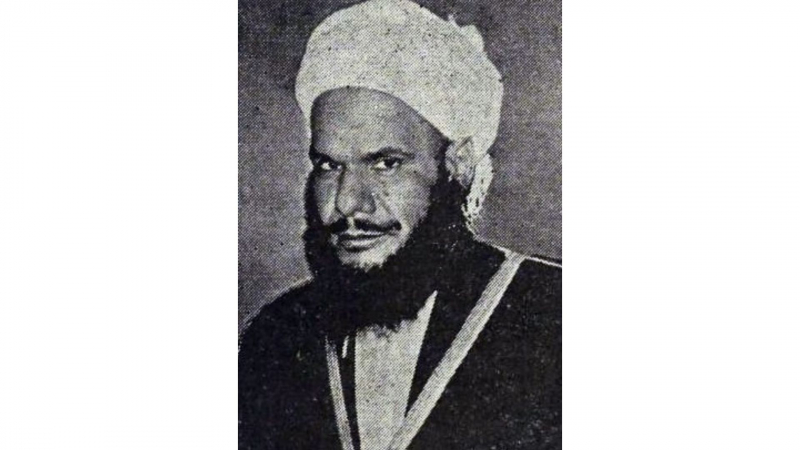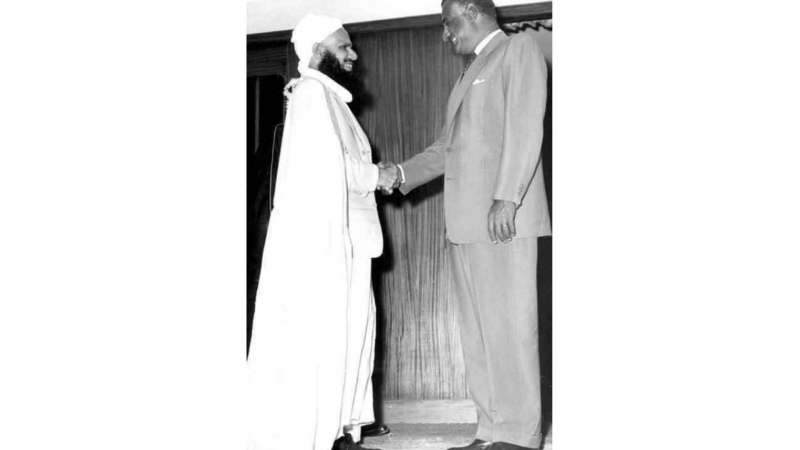Ghalib Bin Ali
Ghalib bin Ali bin Hilal Alhinai (1912 – 29 November 2009) was Oman's last elected king as well as one of the most important historical figures in Oman. Ghalib served as the Qadi (judge) of Rustaq and Nizwa before becoming Imam. He then became the Imamate's Treasurer. Following the death of his predecessor, Imam Alkhalili, on 3 May 1954, Ghalib Alhinai was elected Imam (ruler). His father, Ali bin Hilal Alhinai, was the Wali (governor) of Rustaq before. In the 1950s, his brother Talib bin Ali would become an effective and resolute leader of the Imamate revolt against the Sultan of Muscat.
Oman was divided into two parts: the interior, known as the Imamate of Oman, and the coastal region, known as the Sultanate of Muscat. As the defense secretary and chief of intelligence, chief adviser to the Sultan, and all ministers save one, the British government had extensive authority over the Sultanate. Shortly after being elected, Imam Ghalib commanded the Imamate of Oman in the Jebel Akhdar War against Sultan Said Bin Taimur, which was sponsored by the British government.
Imam Ghalib delegated the subject to the Arab League and the United Nations in order to seek recognition and legitimacy for the Imamate of Oman. The UN General Assembly passed the 'Question of Oman' resolution in 1965, 1966, and 1967, calling for the British government to stop all acts against locals, abolish British sovereignty over Oman, and reaffirm the Omani people's fundamental right to self-determination and independence. The 'Oman question' remained on the UN General Assembly agenda every year until 1971. The cause of the Imamate was supported till 1970. He continued to receive many visitors from Oman until his death, and the people of Oman held him in high regard. He died in Dammam on November 29, 2009, at the age of 96.






